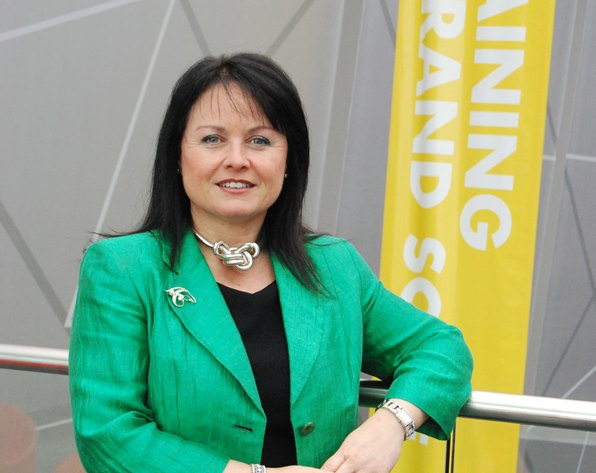Have you run out of ways to promote your corporate event? Well, throwing budget at the problem guarantees nothing so instead try throwing some creativity at it. Fresh ideas are a far more valuable currency for the successful promotion of your event. This particularly goes for squeezing a new demand on people’s time into an already cluttered calendar.
Planning and publicising corporate events effectively and engaging people’s interest right from the start is critical to their success and is about far more than spending a fortune on a hot air balloon and a marching band.
So, if you’re in need of some creative corporate event ideas, take a look at the following 11 examples:
1 – Powerful Invitations
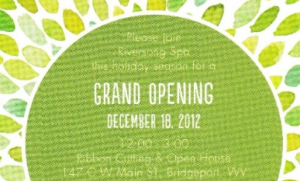 Start by making your invitations powerful statements of the event’s credibility. Done properly, they will make the event irresistible, will incite action and demand to be taken seriously. Personalising invitations is simple and effective. By tailoring them as much as possible to the invitee and their specific business sector, you massively increase the chances they will attend. Use questions aligned to common issues such as: ‘Do you struggle to convert leads into sales?’ Using modern, fresh and compelling designs that work to support the brand are also vital to engage the delegate and lends authority to the event.
Start by making your invitations powerful statements of the event’s credibility. Done properly, they will make the event irresistible, will incite action and demand to be taken seriously. Personalising invitations is simple and effective. By tailoring them as much as possible to the invitee and their specific business sector, you massively increase the chances they will attend. Use questions aligned to common issues such as: ‘Do you struggle to convert leads into sales?’ Using modern, fresh and compelling designs that work to support the brand are also vital to engage the delegate and lends authority to the event.
Read: How to Create Invites That Draw People To Your Events
2 – Attractive Websites
 Websites are still one of the most powerful marketing tools for promoting events today. But if your event website has too much information, doesn’t look appealing and more importantly, doesn’t create a sense of excitement around your event, then chances are people are going to go elsewhere. Thanks to recent advancements in technology, you no longer need to be an expert in web design to put together a great looking site for your event. Most event management solutions, like Eventsforce, offer simple web design tools that have an abundant choice of templates and make the entire process of creating event websites a whole lot easier (and quicker!).
Websites are still one of the most powerful marketing tools for promoting events today. But if your event website has too much information, doesn’t look appealing and more importantly, doesn’t create a sense of excitement around your event, then chances are people are going to go elsewhere. Thanks to recent advancements in technology, you no longer need to be an expert in web design to put together a great looking site for your event. Most event management solutions, like Eventsforce, offer simple web design tools that have an abundant choice of templates and make the entire process of creating event websites a whole lot easier (and quicker!).
Read: 10 Reasons Businesses Invest in Event Management Software
Have a look at this article for some insight on the latest trends in web design, as well as the key things you need to think about when building websites for your events – from video content and fonts to multilingual websites: 10 Easy Tips for Designing Great Event Websites.
In an era where people’s attention is rapidly declining, having the ability to offer people relevance is critical! Find out how you can use personalisation to give your attendees the experience they want by getting YOUR copy of The Event Planner’s Guide to Personalisation.
3 – Business-Specific Agendas
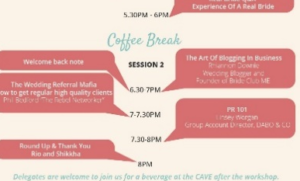 Building from the personalised invite, the more specific the event’s agenda is to the sector, the more likely those people will justify the expense and make the journey. Many people limit themselves to perhaps two or three corporate events a year and want to make sure they get their money’s worth. So tailor your agenda to their needs and help them choose your event over others. Throwing the agenda open too widely, usually in an effort to boost up the numbers, only results in half-interested attendees. Instead focus on a smaller section of the market and make the agenda (and your event) an unmissable moment on their calendar. Being too general is always a recipe for a half-full auditorium after the lunchtime break.
Building from the personalised invite, the more specific the event’s agenda is to the sector, the more likely those people will justify the expense and make the journey. Many people limit themselves to perhaps two or three corporate events a year and want to make sure they get their money’s worth. So tailor your agenda to their needs and help them choose your event over others. Throwing the agenda open too widely, usually in an effort to boost up the numbers, only results in half-interested attendees. Instead focus on a smaller section of the market and make the agenda (and your event) an unmissable moment on their calendar. Being too general is always a recipe for a half-full auditorium after the lunchtime break.
Read: How to Save Time Creating Agendas for Your Events
4 – Amazing Hand-Outs
 Creating inspirational and amazing event hand-outs that will be kept and shared can of course be very expensive. Going through the traditional channels of print publication to produce glossy corporate event brochures can be notoriously expensive. But by focusing on where you spend, or using a small studio press, you can make big savings. You can also use it for promotion ahead of time to generate excitement about the event.
Creating inspirational and amazing event hand-outs that will be kept and shared can of course be very expensive. Going through the traditional channels of print publication to produce glossy corporate event brochures can be notoriously expensive. But by focusing on where you spend, or using a small studio press, you can make big savings. You can also use it for promotion ahead of time to generate excitement about the event.
5 – Added Venue Extras
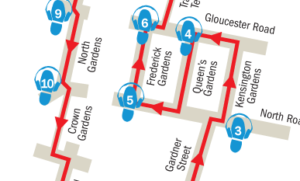 If you know that your client’s delegates are going to be travelling from long distances, why not give them added benefits of a local tour. You could do this yourself or employ a local partner to do it for you. Maybe your event will be inviting an international audience and people who have not visited the area before. Why not arrange a walking tour, this will be of real interest to your audience and be relatively low cost. You could even work with a local tour partner or history group or community group to generate an audio MP3 tour that guests can download onto their smartphones and take on their own. It’s really about creativity and adding on small, bolt-on ideas to keep the delegates happy.
If you know that your client’s delegates are going to be travelling from long distances, why not give them added benefits of a local tour. You could do this yourself or employ a local partner to do it for you. Maybe your event will be inviting an international audience and people who have not visited the area before. Why not arrange a walking tour, this will be of real interest to your audience and be relatively low cost. You could even work with a local tour partner or history group or community group to generate an audio MP3 tour that guests can download onto their smartphones and take on their own. It’s really about creativity and adding on small, bolt-on ideas to keep the delegates happy.
6 – Very Special Guests
 Inviting a keynote speaker or a special guest to host your corporate event is the classic way of filling your venue with interested, engaged visitors. Those who don’t have the budget to invite a Hollywood A-lister to speak, may switch off to this idea immediately. However, by carefully researching your industry sector and asking and understanding who is of interest to your audience, you can find hidden speaking talents. You may find a great live speaker, someone who may not be well known, but can hold an audience, is confident at the podium, someone who speaks from the heart with great authority and engages the audience. Maybe there is someone who has a great story to tell, who can break up the flow with comedy or shake-up the guests. Maybe they have their own side business and would speak for free for the positive promotion it would provide them.
Inviting a keynote speaker or a special guest to host your corporate event is the classic way of filling your venue with interested, engaged visitors. Those who don’t have the budget to invite a Hollywood A-lister to speak, may switch off to this idea immediately. However, by carefully researching your industry sector and asking and understanding who is of interest to your audience, you can find hidden speaking talents. You may find a great live speaker, someone who may not be well known, but can hold an audience, is confident at the podium, someone who speaks from the heart with great authority and engages the audience. Maybe there is someone who has a great story to tell, who can break up the flow with comedy or shake-up the guests. Maybe they have their own side business and would speak for free for the positive promotion it would provide them.
7 – Cultivate a Thriving Online Community
 By carefully nurturing a thriving community of individuals, you can create a lot of interest way before the day of the event. Once someone has signed up to the event, begin creating an email community. Not just forgetting about them or blasting them with countless bland updates on everything from date reminders to speaker bios. This is not a database, it’s an active and caring community of intelligent and interested people so treat them with care. Nurture their interest, give them something for their trust and early sign-up. Notify them of interesting developments with a short but effective weekly or monthly news bulletin.
By carefully nurturing a thriving community of individuals, you can create a lot of interest way before the day of the event. Once someone has signed up to the event, begin creating an email community. Not just forgetting about them or blasting them with countless bland updates on everything from date reminders to speaker bios. This is not a database, it’s an active and caring community of intelligent and interested people so treat them with care. Nurture their interest, give them something for their trust and early sign-up. Notify them of interesting developments with a short but effective weekly or monthly news bulletin.
Read: Top Subject Lines for Your Event Email Campaigns
8 – Build a Buzz!
 Launching a pre-event social media campaign ensures that there is always a rising ground swell of activity which continues to generate energy and excitement right up to the event and even beyond. Create a clear calendar of pre-event activities and monitor and record how the appeal of the campaign is growing. Tie-ins with local partners can also generate a desire to shout about the event: ‘Join us at our Corporate Strategies event on 21 June and enjoy a free burger on us at Ed’s Diner.’ Maybe even design your own Twitter header for people to share and use.
Launching a pre-event social media campaign ensures that there is always a rising ground swell of activity which continues to generate energy and excitement right up to the event and even beyond. Create a clear calendar of pre-event activities and monitor and record how the appeal of the campaign is growing. Tie-ins with local partners can also generate a desire to shout about the event: ‘Join us at our Corporate Strategies event on 21 June and enjoy a free burger on us at Ed’s Diner.’ Maybe even design your own Twitter header for people to share and use.
9 – Local Partners
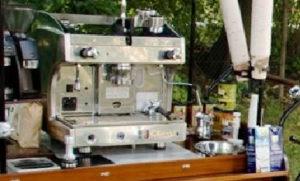 Most events use sponsor partners, but getting local partners and small business involved is a great way to add exciting and unique things onto your event which you can then shout about. For instance, why not invite a pop-up coffee business to park outside the venue or even in the foyer, if allowed. Give your guests an alternative with a pop-up smoothie bar. The local company can provide it free if you go directly to them and can make it worth their while with the right numbers. You can use branded cups for instance to reinforce the message. It’s the kind of thing you can promote in advance and generate excitement about.
Most events use sponsor partners, but getting local partners and small business involved is a great way to add exciting and unique things onto your event which you can then shout about. For instance, why not invite a pop-up coffee business to park outside the venue or even in the foyer, if allowed. Give your guests an alternative with a pop-up smoothie bar. The local company can provide it free if you go directly to them and can make it worth their while with the right numbers. You can use branded cups for instance to reinforce the message. It’s the kind of thing you can promote in advance and generate excitement about.
10 – Raffles and Quirky Competitions
 The promise of quirky competitions can be a bizarre but popular promotional tool. Having a quick prize draw between each presentation or one slot reserved for a prize draw can be a great way to build community in your audience. You could ask each speaker to bring along a prize, something funny or serious. It can get all of your audience tweeting about the event and really help ramp up the good will.
The promise of quirky competitions can be a bizarre but popular promotional tool. Having a quick prize draw between each presentation or one slot reserved for a prize draw can be a great way to build community in your audience. You could ask each speaker to bring along a prize, something funny or serious. It can get all of your audience tweeting about the event and really help ramp up the good will.
11 – Video the Event
 You may not be able to wow audiences at your event with expensive multimedia and AV but by videoing the proceedings you at least help generate post event content and build the event into something more of a live or theatrical performance. If speakers know in advance that they are going to be videoed, they nearly always perform better. Their reputations as great speakers are on the line and they liven up. They put more into it and engage with the audience better. Moz Con, the major US digital marketing conference, is excellent at this and has built up the profile of its speakers.
You may not be able to wow audiences at your event with expensive multimedia and AV but by videoing the proceedings you at least help generate post event content and build the event into something more of a live or theatrical performance. If speakers know in advance that they are going to be videoed, they nearly always perform better. Their reputations as great speakers are on the line and they liven up. They put more into it and engage with the audience better. Moz Con, the major US digital marketing conference, is excellent at this and has built up the profile of its speakers.
Creativity is like currency for promoting corporate events, no matter what budget you have earmarked. Time is a critical resource for your delegates and they want to firstly and primarily know that their time will be rewarded and that they will be wowed by your excitement in the project.
Did you enjoy reading this article? Why not sign up to our weekly EventTech Talk newsletter for tips, updates and research reports on all the latest technology and marketing trends shaping the events industry today.




 The importance of social media during live events is well established. According to
The importance of social media during live events is well established. According to 